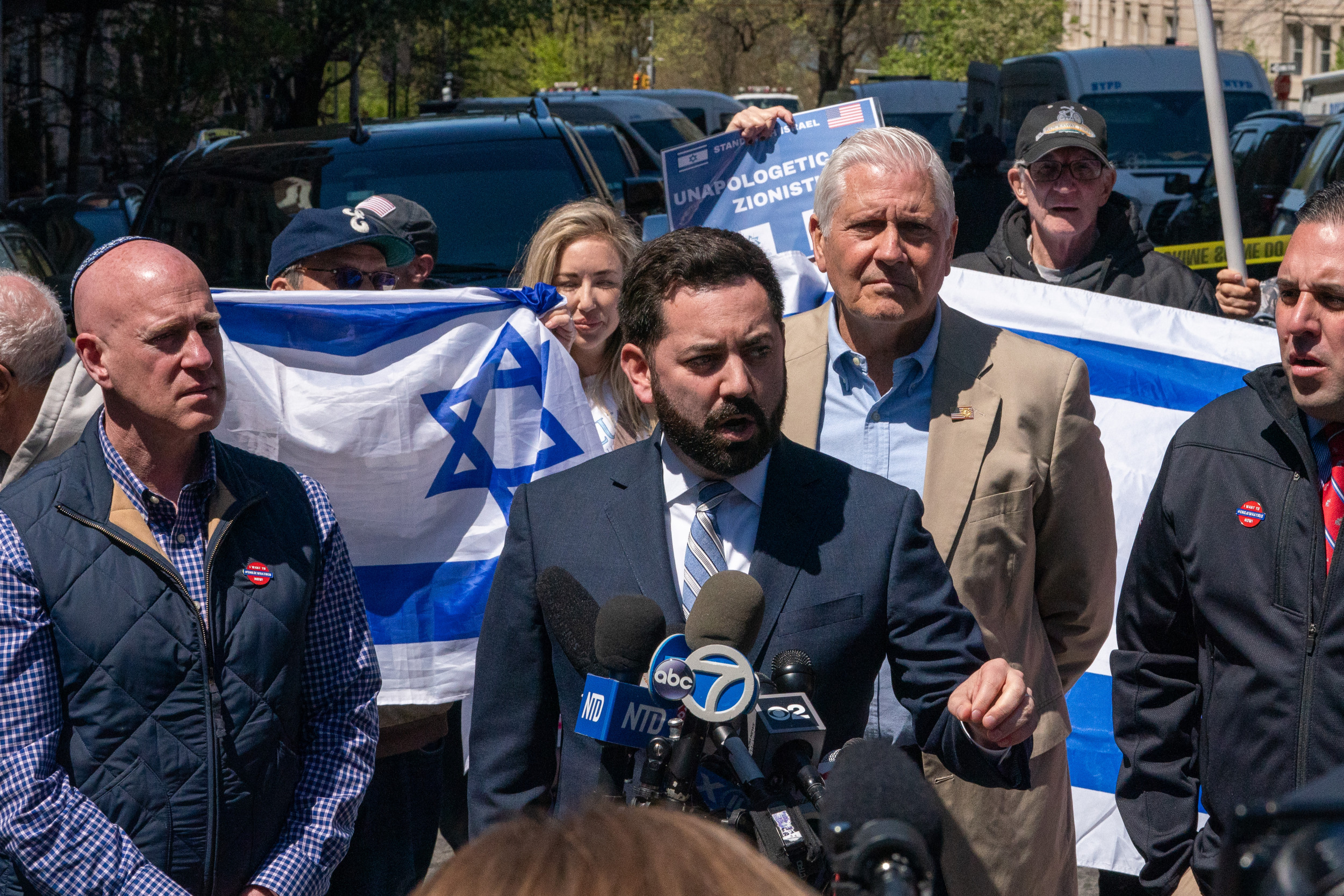Democratic lawmakers are fighting back against Louis DeJoy, the postmaster general of the United States Postal Service (USPS), who announced last month that the Service would update its aging delivery fleet with a majority of gas vehicles rather than electric ones.
The House Committee on Oversight and Reform revealed in a Thursday release that it plans to hold a hearing on April 5 examining " the benefits, opportunities, and challenges of electrifying the Postal Service fleet."
While Postmaster General Louis DeJoy has defended his agency's decision to invest in gas vehicles due to cost concerns, Democrats like Congressman Gerry Connolly of Virginia, who chairs Oversight and Reform's postal overseer, the Subcommittee on Government Operations, isn't buying it.
"It's a disingenuous argument to say, 'Well, I haven't got the money' — but you haven't asked for it," Connolly told Newsweek. "And even when you haven't asked for it, we've shown a willingness to give it to you anyhow."
In fiscal year 2021, the USPS reported operating expenses that totaled $81.8 billion. During that same year, its total unfunded liabilities and debt reached $122.5 billion, more than 150% of its annual revenue. Yet, despite it's financial struggles, the USPS has consistently ranked as one of the nation's most popular federal institutions, with some 90% of respondents in USPS surveys holding favorable views.
Because of its popularity, the agency has seen bipartisan support. On March 28, Congress presented Biden with the bipartisan Postal Service Reform Act, which would remove a massive debt burden that has weighed down the institution for decades.
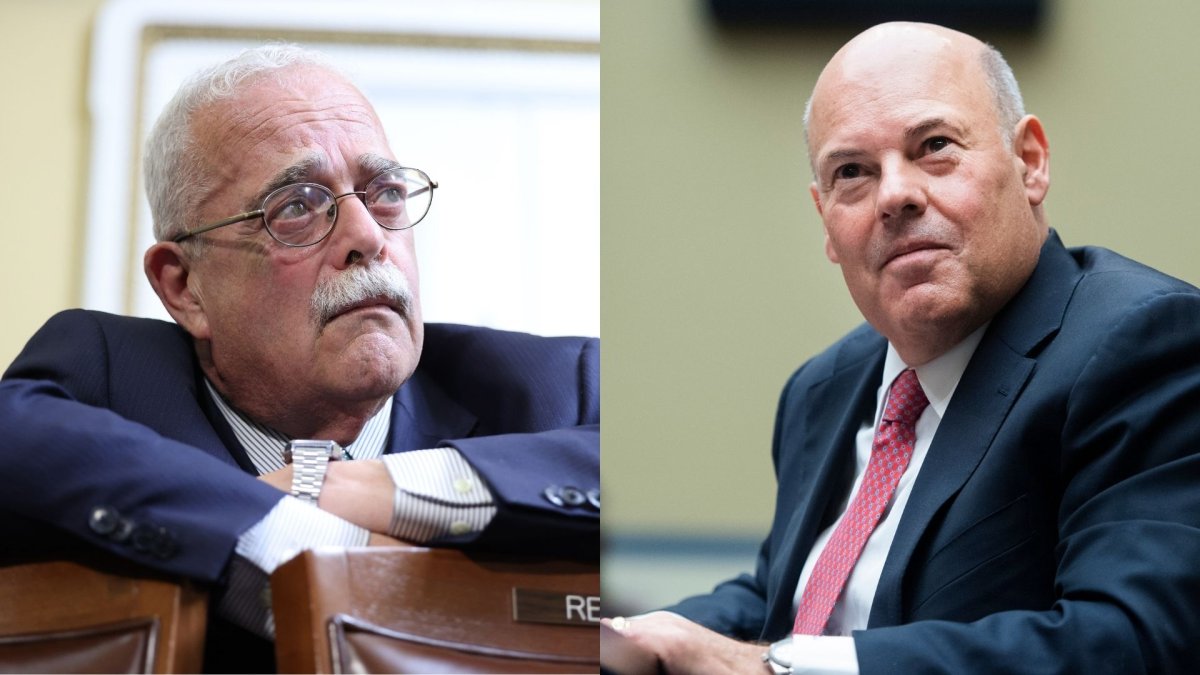
Connolly says this demonstrates that Congress will act on DeJoy's needs when he requests it. Yet, Connolly says it appears DeJoy has made little attempt to secure funding for electric vehicles, leading Connolly to expect that his decision is politically motivated.
"DeJoy has shown his political stripes from day one," Connolly told Newsweek. "This is somebody who actively engaged in disrupting the Postal Service in order to influence the election result. He was called out on that not only by members of Congress, but more importantly by federal judges."
U.S. Judge Stanley Bastian of Washington ruled that changes initiated by DeJoy during the time of the 2020 election appeared to be a "politically motivated attack on the efficiency of the Postal Service" that introduced the "substantial possibility (that) many voters will be disenfranchised."
Connolly, who also co-chairs the House Sustainable Energy & Environment Coalition, aims to introduce legislation called the Green Postal Service Fleet Act that would stop DeJoy from moving forward with his gas vehicle plan by requiring the Service to have "at least 75 percent electric or zero emission vehicles."
That 75% number is much higher than the one laid out in the Post Office's original plan, which only called for 10% of its new fleet to be powered by electricity.
This bill has garnered 71 Democratic co-sponsors, and Oversight Committee Chair Carolyn Maloney has expressed favor toward the move, saying USPS "must prioritize the acquisition of electric vehicles or it will be stuck with outdated technology that further pollutes our environment for decades."
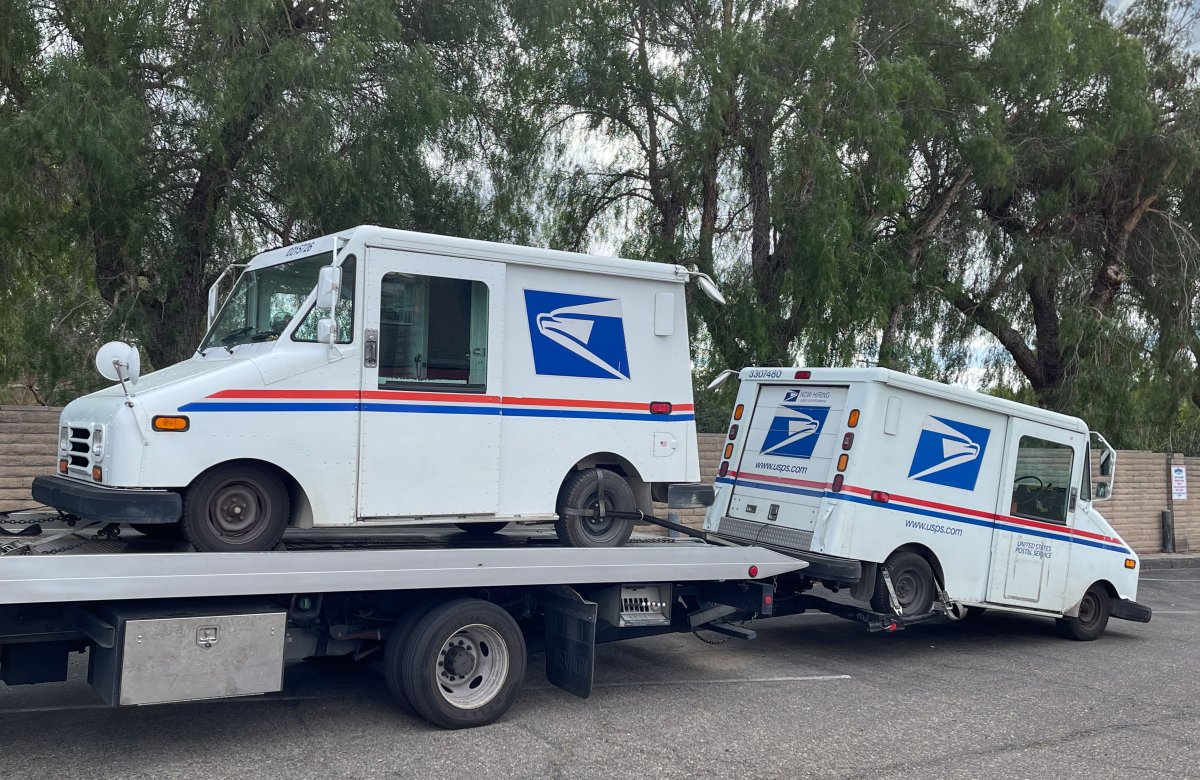
However, despite the rosy attitude toward electric vehicles of Connolly and his colleagues, DeJoy says the proposal underlies a fundamental misunderstanding of the scope, size and logistics of the organization.
With 8,500 facilities, 600,000 employees and a network of more than 160 million delivery addresses, the Postal Service is still one of the largest organizations in the United States and continues to face financial challenges.
With that in mind, DeJoy dismissed the early calls for a majority-electric vehicle fleet, telling Postal Board members that while he is "compelled to act prudently in the interest of the American public, that responsibility should not be mistaken for an ambivalent commitment to operating a cleaner postal vehicle fleet for our country."
The Postal Service echoed a similar sentiment in an official statement.
"While we can understand why some who are not responsible for the financial sustainability of the Postal Service might prefer that we acquire more electric vehicles, the law requires us to be self-sufficient," the statement read.
Michael Ravnitzky worked at the Postal Regulatory Commission from 2005 through 2015 as staff assistant to Commissioner Ruth Goldway, and from 2009 through 2014 as chief counsel to Chairman Goldway. While he agrees that quickly transitioning the largest government fleet to electric vehicles is the right decision to help meet national emissions goals, he said he understands where DeJoy is coming from in saying that it may not be an ideal route from an organizational perspective.
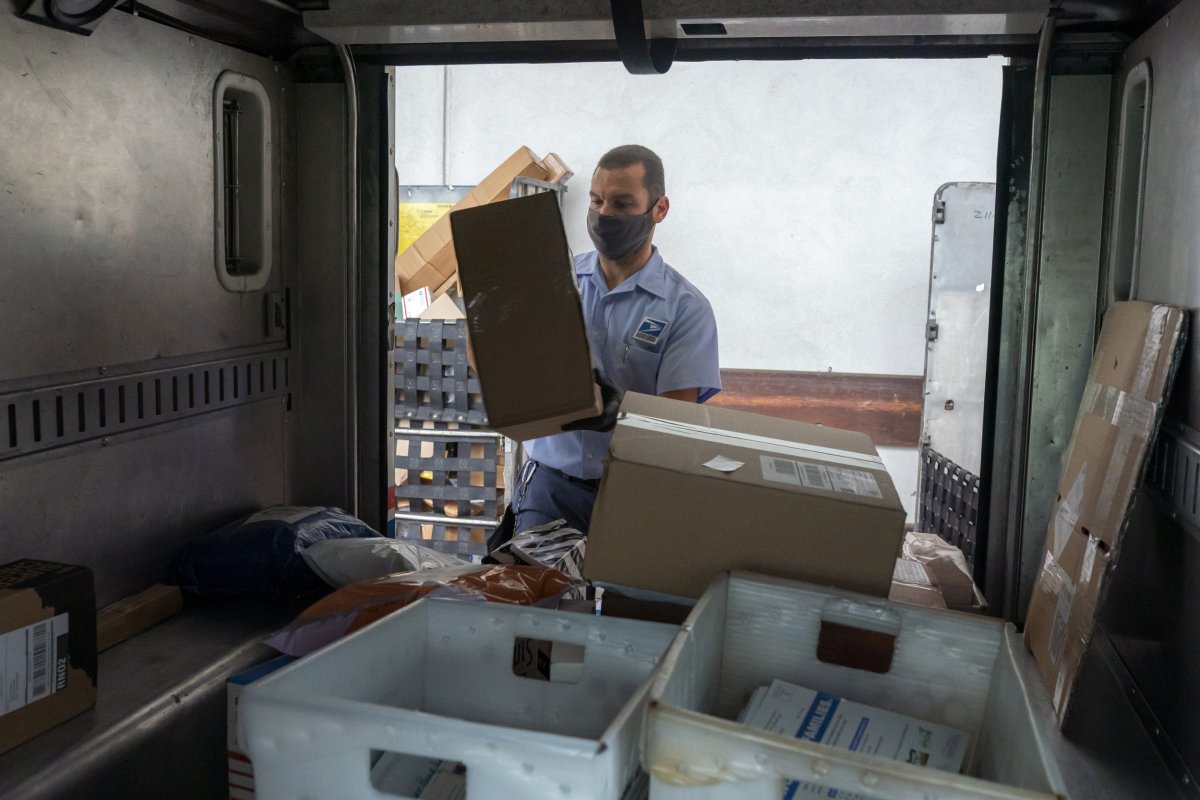
"It's hard to condemn the Postal Service for making reasonable decisions," he said. "From a risk perspective, having a lower-cost internal combustion fleet with new gasoline engines is not necessarily such a bad choice from the USPS's standpoint."
"But when you look at it from the perspective of the United States in 2022," he added, "with everything we know about climate change and the government's responsibility to address some of these issues, then that decision that is reasonable from an internal perspective does not make as much sense externally."
From his first-hand perspective, Ravnitzky argues that the Postal Service's problems cannot just be reduced to poor leadership or "big government" oversight. He said that the major problems stifling the organization include its lack of available capital, slow procurement process and poor strategy for external communications.
"There's a whole range of things the Postal Service has to consider when they are making these decisions." he told Newsweek. "But I think some of the criticism has been somewhat unfair. People are condemning the move, but are not aware of the lengthy review process that the Postal Service has put into place to plan this procurement."
While he supports the transition to electric vehicles and believes the organization can do a much better job of innovating, he also emphasized the importance of giving some grace to America's most beloved institution.
"The Postal Service constantly has to balance the risks against the cost benefits, against the perception on the Hill and Congress, and against the country's perception on what they should and should not be doing," said Ravnitzky. "At the end of the day, my experience with the Postal Service is that they are a group of very committed people, doing a mission that is often under-appreciated."
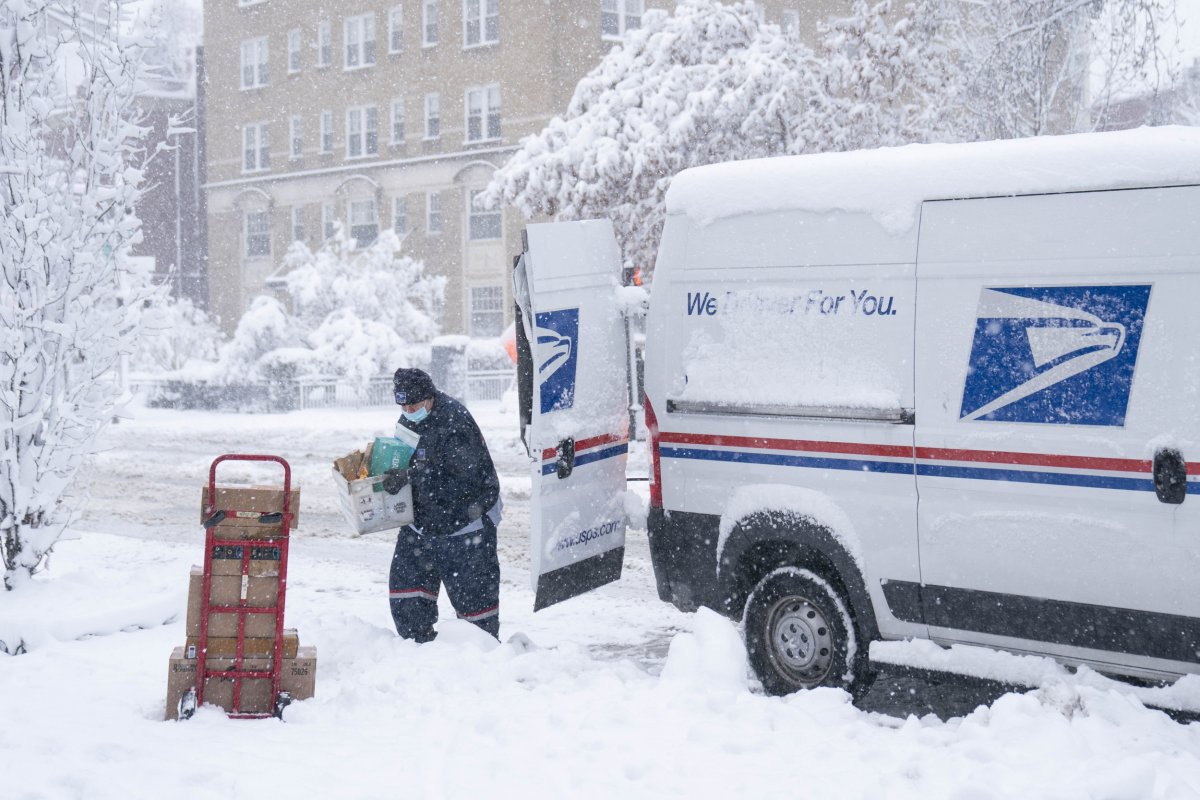
Ravnitzky says USPS' slow procurement process is also a major cause for blame, saying that "most people are not aware of the lengthy review process that the Postal Service put into place to plan this procurement." With electric vehicles still emerging within the vehicular market, he empathizes with the Post Office's careful approach to the shift.
In turn, Connolly argues that if the organization is unable to speed up this process for making innovative investments, it runs the risk of becoming increasingly outdated and obsolete. He says in the long run, USPS will ultimately save money by investing in EVs, making the investment sound, from his perspective.
He argues that although these logistical restrictions do exist, DeJoy has only made it worse through his miscommunication and increasingly negative image. Given his past actions, Connolly continues to see DeJoy as a Trump steward, and his decision to only increase the number of EVs in the fleet by 10% only furthers this image.
"Even if you want to argue that he is not all bad, he's got so much baggage at this point that he is no longer credible and will always be damaged goods going forward," Connolly told Newsweek. "Why not pick an alternative who is none of that?"
To remove DeJoy from his position, the Postal Service's Board of Governors must vote in favor of his removal. Despite President Biden nominating two candidates for the board, those nominations have not passed the U.S. Senate, leaving the conservative-majority board with the authority to keep DeJoy in place.
"This policy looks to be in outright defiance of (America's) environmental goals," Connolly told Newsweek. "I do not understand why we are allowing a Trump-selected, unqualified candidate to continue being Postmaster General."
Despite his initial reluctance to increase the order of electric vehicles, last week DeJoy announced an important adjustment to his original procurement plan, doubling the USPS's original order of EV's.
Based on recent developments and "our improving outlook," DeJoy said, "we have determined that increasing our initial electric vehicle purchase from 5,000 to 10,019 makes good sense from an operational and financial perspective."
While some have interpreted this move to be an encouraging sign of progress, Connolly is not so optimistic.
"My bill would say the fleet has got to be 75 percent electric," he said. "Am I to say that his willingness to go up to 20 percent is progress?"
"This is a very reluctant concession on his part," Connolly added. "He ought to be embracing the opportunity to go EV and to have a cutting edge, technologically advanced, more efficient and lower cost vehicle fleet."
Correction 04/01/22, 11:24 a.m. ET: This article was updated to reflect that Postmaster General Louis DeJoy was not appointed by former-President Donald Trump, and that he did not specifically state an intention to go against President Joe Biden's green agenda when he announced his intention to order a majority of new gas delivery vehicles rather than electric ones.
Uncommon Knowledge
Newsweek is committed to challenging conventional wisdom and finding connections in the search for common ground.
Newsweek is committed to challenging conventional wisdom and finding connections in the search for common ground.
About the writer
To read how Newsweek uses AI as a newsroom tool, Click here.





